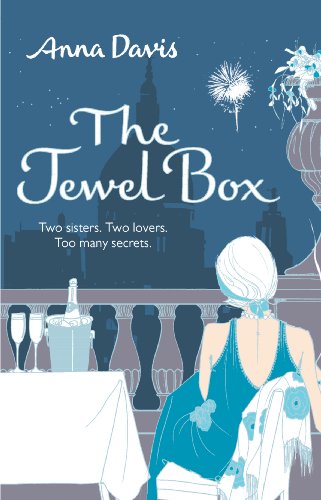The Jewel Box
Grace Rutherford is a pioneer. By day she is the first female copywriter at a stuffy advertising agency. By night, she is Diamond Sharp, gossip columnist, arbiter of fashion and good taste and all round flapper.
Soon, she finds herself having to choose between two very different men – American playboy novelist, Dexter O’Connel, who has never quite recovered his form since his scandalous first novel, and the quiet, intense John Cramer, whose past is inextricably linked with O’Connell’s and whose future might lie with Grace’s younger sister, Nancy, a widow with two small children.
It is a stroke of genius on Davis’s part to reinvent chick-lit for the London of the 1920s. The hedonistic era is perfect for the more daring or frivolous aspects of the genre but, like all the best chick-lit, this is a book with dark undercurrents beneath its glittering surface.
The Great War is still within living memory and continues to haunt the central characters. Grace might appear to have a party lifestyle, but she is working so hard in order to support her family as well as trying to assuage the guilt she feels at the secret injury she has inflicted on her beloved sister. Like the book itself, she is far deeper than might appear from an initial glance.
The novel is cleverly plotted, the characters satisfyingly complex and only one phrase, ‘does what it says on the tin’ is far too modern for the period in which the story is set. In short, I loved it.










